BY THE EXPOSÉ ON • ( 19 COMMENTS )

In the shadowed corridors of power, hidden beneath the veil of global initiatives, lies an agenda that promises a utopian future but may lead us down a dystopian path.
Agenda 2030, hailed as a blueprint for sustainable development, raises alarms among critical thinkers who perceive a darker undercurrent lurking beneath its seemingly benevolent goals.
As we peer into the depths of this ambitious plan, we uncover a web of potential consequences that, if left unchecked, could fundamentally alter the fabric of society.
From intrusive surveillance to erosion of individual freedoms, this article delves into the potential dystopian consequences of Agenda 2030, unmasking the risks that lie beneath the glossy facade of a better world.
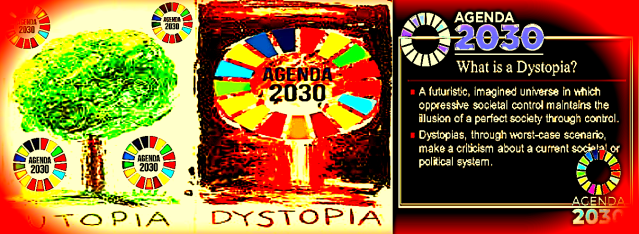
Let’s not lose touch…Your Government and Big Tech are actively trying to censor the information reported by The Exposé to serve their own needs. Subscribe now to make sure you receive the latest uncensored news in your inbox…
Agenda 2030, officially known as “Transforming our world: the 2030 Agenda for Sustainable Development,” is a global framework adopted by United Nations (UN) member states in 2015. It outlines a set of 17 Sustainable Development Goals (SDGs) and 169 targets to be achieved by the year 2030. The ultimate goal of Agenda 2030 is to create a more sustainable, equitable, and prosperous world by addressing various social, economic, and environmental challenges.
The idea for Agenda 2030 and the SDGs emerged from an extensive consultation process involving governments, civil society organizations, and other stakeholders. The UN General Assembly established an Open Working Group on Sustainable Development Goals to develop a proposal for the SDGs. This group engaged in discussions and consultations to identify key areas for global action, taking into account the interconnected nature of social, economic, and environmental issues.

The proposal put forth by the Open Working Group served as the basis for negotiations among UN member states. The final document, known as Agenda 2030, was adopted by consensus during the UN Sustainable Development Summit in September 2015. The adoption of Agenda 2030 reflects the collective commitment of nations to work towards a more sustainable and inclusive future.
- Understanding Agenda 2030: Agenda 2030 represents a global commitment to sustainable development and encompasses 17 interconnected SDGs. These goals range from eradicating poverty and hunger to promoting gender equality, affordable and clean energy, climate action, and more.
The United Nations encourages member states to align their national policies and strategies with the SDGs, fostering collaboration and collective action to achieve these ambitious targets.
- Funding Mechanisms and Stakeholders: To address concerns about hidden funding and potential undue influence, it is crucial to explore the financial mechanisms and key stakeholders involved in supporting Agenda 2030. Funding for the implementation of the SDGs comes from various sources, including member countries, international organizations, philanthropic foundations, and private-sector partnerships.
Entities such as the World Bank, regional development banks, and non-governmental organizations also play significant roles in mobilizing resources and providing technical assistance.
- Philanthropic Foundations and Corporate Partnerships: Philanthropic foundations, such as the Bill & Melinda Gates Foundation and the Rockefeller Foundation, have emerged as influential contributors to the implementation of Agenda 2030.
These foundations channel substantial resources towards initiatives aligned with the SDGs, leveraging their financial and organizational capacities to drive progress. Corporate partnerships also play a significant role, as businesses increasingly recognize the value of sustainable practices and aligning their operations with the SDGs.
- National-Level Funding and Partnerships: At the national level, governments allocate funds and establish partnerships to support the implementation of Agenda 2030. In the UK, for example, the government has created the International Development Fund to contribute to sustainable development projects globally.
Similarly, the USA has established partnerships through agencies like the United States Agency for International Development (USAID) to promote sustainable development practices worldwide.
- Critiques and Counterarguments: Critics of Agenda 2030 raise concerns about the influence of private foundations and corporate interests in shaping the implementation of the SDGs.
They argue that such influence may lead to hidden agendas and compromises in pursuing truly sustainable development.
However, proponents emphasize that engaging diverse stakeholders, including the private sector, is essential for mobilizing the resources and expertise needed to tackle complex global challenges effectively.
- Potential Dystopian Consequences: While sceptics speculate about potential dystopian consequences, it is essential to critically evaluate such claims. Accusations range from fears of centralized control, loss of national sovereignty, or the erosion of individual freedoms.
However, proponents argue that Agenda 2030 promotes inclusivity, social justice, and environmental sustainability, and is a collaborative effort to create a better future for all.
- Promoting Transparency and Accountability: Transparency and accountability are crucial in ensuring the proper implementation of Agenda 2030. Initiatives such as the UN Global Compact, the Open Government Partnership, and the Independent Reporting Mechanism aim to hold governments, organizations, and stakeholders accountable for their commitments to sustainable development.
Civil society engagement, public consultations, and robust monitoring mechanisms also contribute to maintaining transparency and fostering responsible action.

The benefits that individuals like Klaus Schwab and Bill Gates may derive from Agenda 2030 are a subject of speculation and debate. Critics argue that these individuals, along with their associated organizations and foundations, stand to gain influence, power, and financial advantages through their involvement in promoting and implementing sustainable development initiatives.
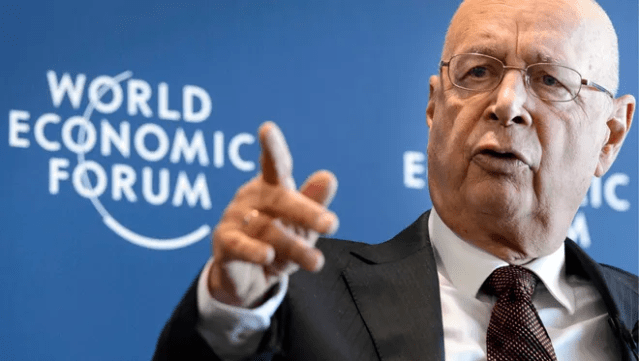
Klaus Schwab, as the founder and executive chairman of the World Economic Forum (WEF), has been a prominent figure in advocating for the Great Reset and Agenda 2030. While some view his efforts as a genuine commitment to global welfare, others raise concerns about the concentration of power and the potential for the WEF to shape global policies and agendas according to its own interests.
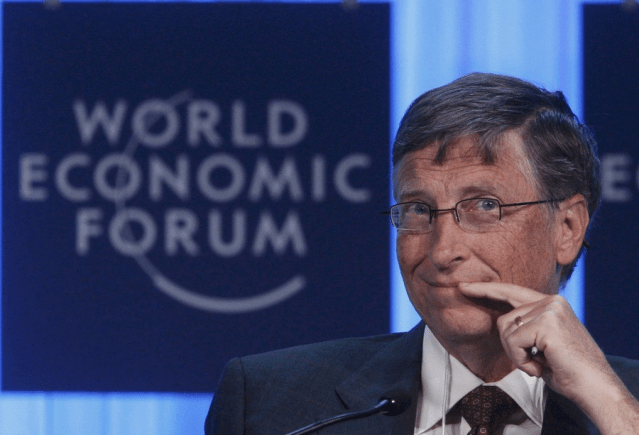
Bill Gates, through the Bill & Melinda Gates Foundation, has invested significant resources in various sustainable development initiatives, including healthcare, education, and climate change. While his philanthropic efforts are widely recognized, sceptics question his influence in shaping global health policies, particularly in areas such as vaccines, where his foundation has been actively involved.
It is worth noting that Agenda 2030 is a broad framework endorsed by governments worldwide, and its implementation involves multiple stakeholders, including governments, international organizations, businesses, and civil society. While individuals like Schwab and Gates have played influential roles, they are part of a larger collective effort aimed at achieving sustainable development goals.
The motivations and potential benefits of individuals associated with Agenda 2030 are open to interpretation. Transparency and accountability mechanisms are crucial in ensuring that the implementation of Agenda 2030 remains focused on the collective welfare and addresses the concerns of all stakeholders involved.
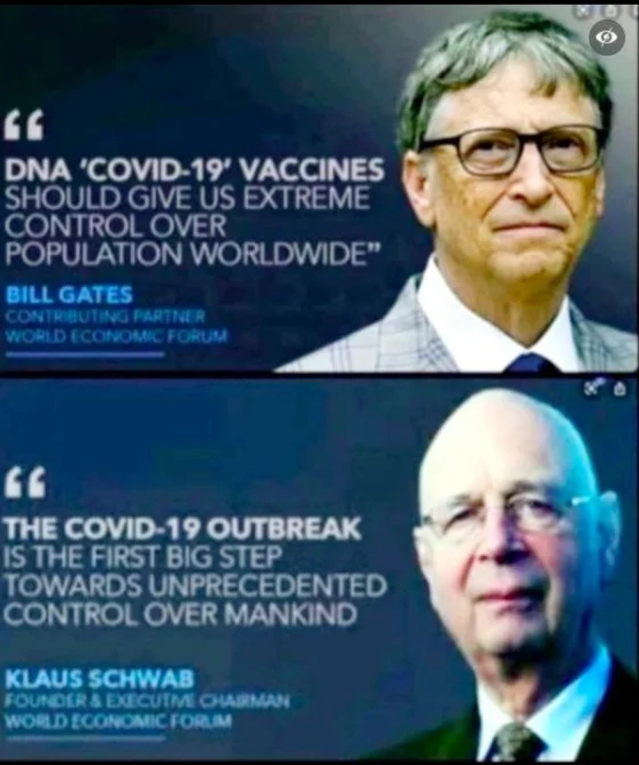
As pharmaceutical companies involved in the development and production of COVID-19 vaccines, Pfizer and Moderna have played a significant role in addressing the global health crisis. In the context of Agenda 2030 and its sustainable development goals, their contributions can be seen as aligned with the aim of ensuring good health and well-being for all.
While it is difficult to ascertain the specific benefits that Pfizer and Moderna may derive from Agenda 2030, their involvement in addressing public health challenges, including vaccine development and distribution, can contribute to their reputation, market position, and potential financial gains. The increased demand for vaccines, especially during the COVID-19 pandemic, has led to significant revenues for these companies.
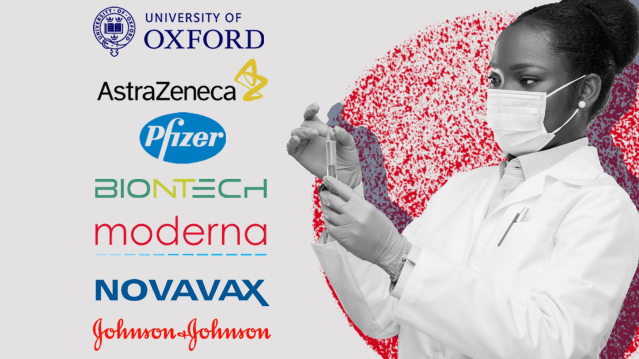
It is important to note that pharmaceutical companies, including Pfizer and Moderna, operate within a complex healthcare ecosystem that includes governments, regulatory bodies, healthcare providers, and other stakeholders. Their contributions to addressing global health challenges are part of a broader collective effort, and their success is often linked to the effectiveness and safety of their products.
While it is essential to scrutinize the actions and motives of pharmaceutical companies, it is equally important to recognize their role in advancing medical research, innovation, and public health outcomes. The long-term impact of their involvement in Agenda 2030 and their contributions to global health will continue to evolve as progress is made towards achieving sustainable development goals.
While Agenda 2030 aims to create a more sustainable and equitable world, critics and sceptics have raised concerns about potential dystopian consequences that could arise from its implementation. It is important to note that these concerns reflect a particular perspective and do not represent a consensus view.
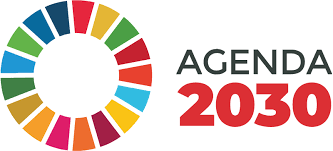
Here are some possible dystopian consequences that have been raised:
- Loss of National Sovereignty: Critics argue that the implementation of Agenda 2030 could lead to an erosion of national sovereignty as decisions and policies are increasingly influenced by global institutions and international agreements. They contend that powerful international organizations may exert control over national governments, potentially limiting their ability to make independent decisions.
- Centralized Global Governance: Some sceptics express concerns that Agenda 2030 could pave the way for the establishment of a centralized global governance system. They fear that global institutions may gain greater power and authority, potentially overshadowing the role of nation-states and reducing democratic accountability.
- Economic Disruption and Redistribution: The emphasis on social and economic equality within Agenda 2030 has been criticized by some who argue that it could lead to excessive redistribution of wealth and resources. Sceptics suggest that this could stifle economic growth, discourage innovation, and discourage individual initiative.
- Technological Surveillance and Control: The advancement of technology plays a significant role in Agenda 2030. However, sceptics raise concerns about potential surveillance and control mechanisms that could be implemented to monitor and regulate various aspects of society. They caution that extensive data collection and surveillance could infringe on individual privacy and civil liberties.
- Limitations on Individual Freedom: Critics worry that the pursuit of sustainability goals outlined in Agenda 2030 could result in restrictions on individual freedoms and personal choices. They argue that regulations and policies aimed at achieving sustainable development may infringe on personal liberties and limit individual autonomy.
- Economic Burden on Developing Nations: Some sceptics contend that Agenda 2030 places a disproportionate burden on developing nations, requiring them to divert resources from economic development and growth to meet the goals outlined in the agenda. They argue that this could perpetuate a cycle of dependency and hinder the progress of these countries.
The implementation of Agenda 2030 requires careful attention to ensure that its goals are pursued in a way that balances social, economic, and environmental considerations with individual rights and freedoms.
Conclusion
In a world where scepticism prevails, it is crucial to approach Agenda2030 and its implications for the UK and the USA with critical thinking and an open mind.
While concerns about hidden agendas and dystopian consequences persist among some individuals, it is important to separate fact from speculation and base judgments on verifiable evidence.
Agenda 2030 represents a global commitment to addressing pressing challenges and achieving sustainable development. Its funding mechanisms involve a combination of contributions from member countries, philanthropic foundations, and corporate partnerships.
Entities such as the Bill & Melinda Gates Foundation and the Rockefeller Foundation have played influential roles in supporting sustainable development initiatives.
Critics argue that the involvement of private foundations and corporate interests raises questions about undue influence and potential compromises in pursuing genuine sustainability.
However, proponents highlight the importance of engaging diverse stakeholders and leveraging their resources and expertise to tackle complex global challenges effectively.
While concerns about potential dystopian consequences have been raised, it is essential to critically evaluate such claims. Agenda 2030 emphasizes inclusivity, social justice, and environmental sustainability, aiming to create a better future for all.
The promotion of transparency, accountability, and public participation helps ensure responsible implementation and guards against any hidden agendas.
Moving forward, it is crucial for governments, organizations, and stakeholders to remain transparent, uphold accountability, and actively involve civil society in decision-making processes.
This includes robust monitoring mechanisms, independent evaluations, and open dialogue to address concerns, maintain public trust, and ensure the realization of sustainable development goals.
As critical thinkers, it is incumbent upon us to scrutinize information, question assumptions, and seek evidence-based analysis. While scepticism can be healthy, it is equally important to differentiate between genuine concerns and unfounded conspiracy theories.
By engaging in informed discussions and constructive dialogue, we can collectively contribute to shaping a future that aligns with our aspirations for a just, equitable, and sustainable world.
In conclusion, Agenda 2030 represents a global commitment to sustainable development, aiming to address pressing challenges and create a better future for all.
While concerns about hidden funding and potential dystopian consequences exist, a thorough examination of the facts and a commitment to transparency and accountability can help alleviate fears and foster informed decision-making.
By engaging in responsible dialogue and actions, we can actively contribute to shaping a world that reflects our shared values and aspirations for a brighter future.

_______________________________
The Time for Silence is Over
A unified pushback against the globalist agenda
It’s finally here, the Global Walkout begins September 4th at 8pm London time and continue every weeks. Next step may 7th.
One step at a time, hand in hand, we are walking out from the globalist society they are trying to enslave us into
ANYONE can participate
ANYWHERE in the world
JOIN or read about it here – https://globalwalkout.com

https://www.reignitefreedom.com/
The third step is to unsubscribe from all mainstream media outlets. Delete the apps from your phone, laptop, and tablet and unfollow all of their social media and YouTube channels. Try to avoid mainstream media for at least one week, even if the headline is intriguing.
In the same time why not removing all the big tech tracking/spying/social credit system around you: (Youtube, Facebook, Instagram, Twitter, Tik Tok, Google, Apple, Microsoft, Whatsapp, Zoom, Linkedln, Snapchat, Tumblr, Pinterest, Reddit, Myspace, etc.)
The fourth step of the global walkout is to move as many accounts as you can to a union or local bank.
If you like our work please consider to donate :
_______________________________
If you are looking for solutions (lawyer, form, gathering, action, antidote, treatments, maybe this could help you:
HERE
If you want to fight back better:
https://childrenshealthdefense.org/child-health-topics/health-freedom/defender-days-sticker-gallery/
Find the others: www.freedomcells.org
Spike Protein Protocol
Glutathione (most important for body detoxification) or better
NAC = N-Acetyl-Cysteine 600-750mg (causes the body to produce glutathione itself)
Zinc
Astaxantin 5mg (also improves vision)
Quercetin
vitamin D3
Milk thistle (also liver and stomach protection)
Melatonin 1mg to 10mg (against 5G)
Alternatively CDS/CDL and zeolite
Dr. Zelenko’s Protocol contains Ivermectin, Hydroxychloroquine (HCQ), Zinc, Vitamin D3, and Quercetin.
How to find the truth :
Search engine: https://presearch.org/, https://search.brave.com/, Searx (choose the server that you want) or https://metager.org/
Videos: www.odysee.com
www.bitchute.com
www.brandnewtube.com
Facebook style: www.gab.com or https://www.minds.com/
INTELLIGENCE ISN’T KNOWING EVERYTHING, IT’S THE ABILITY TO CHALLENGE EVERYTHING YOU KNOW
Related posts:
Views: 0
 RSS Feed
RSS Feed

















 May 16th, 2023
May 16th, 2023  Awake Goy
Awake Goy  Posted in
Posted in  Tags:
Tags: 
















